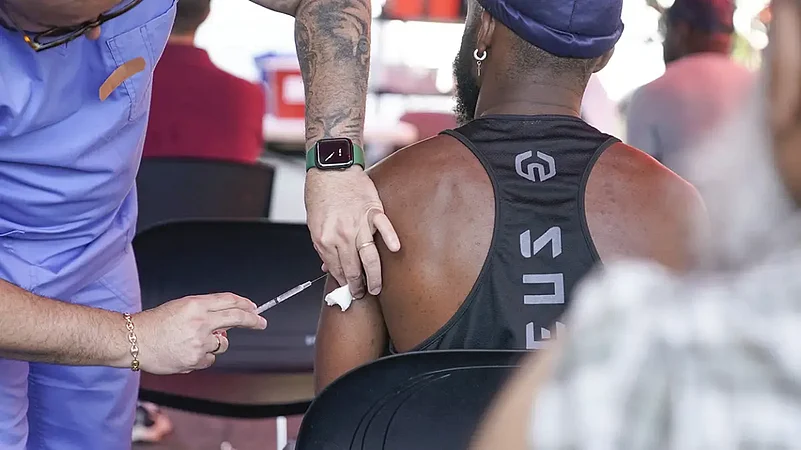The World Health Organisation (WHO) chief on Friday said he believes that the ongoing Mpox outbreak in Africa could be stopped in the next six months, adding that the agency's first shipment of vaccines should arrive in Congo within days.
So far, Africa has received just a small fraction of vaccines that are needed to slow down the spread of the virus, especially in Congo, which has recorded the maximum number of Mpox cases -- over 18,000 suspected case and 629 deaths.
"With the governments' leadership and close cooperation between partners, we believe we can stop these outbreaks in the next six months," WHO Director-General Tedros Adhanom Ghebreyesus said during a press briefing.
While Mpox -- also known as Monkeypox -- infections have been on the rise in the last few weeks, Tedros noted that there have been relatively lesser deaths. He also said that 258 cases of Mpox's newest version were also recorded, with patients in Burundi, Rwanda, Kenya, Uganda, Sweden and Thailand.
Earlier this month, WHO had declared Mpox outbreaks in Africa to be a global emergency, hoping to prompt a strong global response to the disease on a continent where cases were spreading and going unnoticed for years, including those in Nigeria.
Scientists in May discovered a new version of the disease in Congo and they think that it could be spreading more easily.
Monkeypox is related to smallpox but it typically causes milder symptoms, including fever, headache and body aches. In cases of severe infection, patients can develop sores and blisters on the face, chest, hands and genitals. Mpox is typically spread via close skin-to-skin contact.
WHO estimated about 2,30,000 vaccines could be sent immediately to Congo and elsewhere. The UN agency said that it was also working on education campaigns to raise awareness among people about how to avoid the spreading of Mpox in countries with outbreak.
Maria Van Kerkhove, who directs WHO's epidemic and pandemic diseases department, said the agency was working to expedite vaccine access for affected countries given the limited available supply.
Scientists previously also pointed out that without a better understanding of how Mpox is spreading in Africa, it may be difficult to know how best to use the vaccine shots, The Associated Press reported.
Earlier this week, the head of Africa's Centre for Disease Control and Prevention said the continent was hoping to receive about 3,80,000 doses of Mpox vaccines promised by donors including the United States and the European Union. This is less than 15 per cent of the doses authorities said are needed to end the Mpox outbreaks in Congo.


























